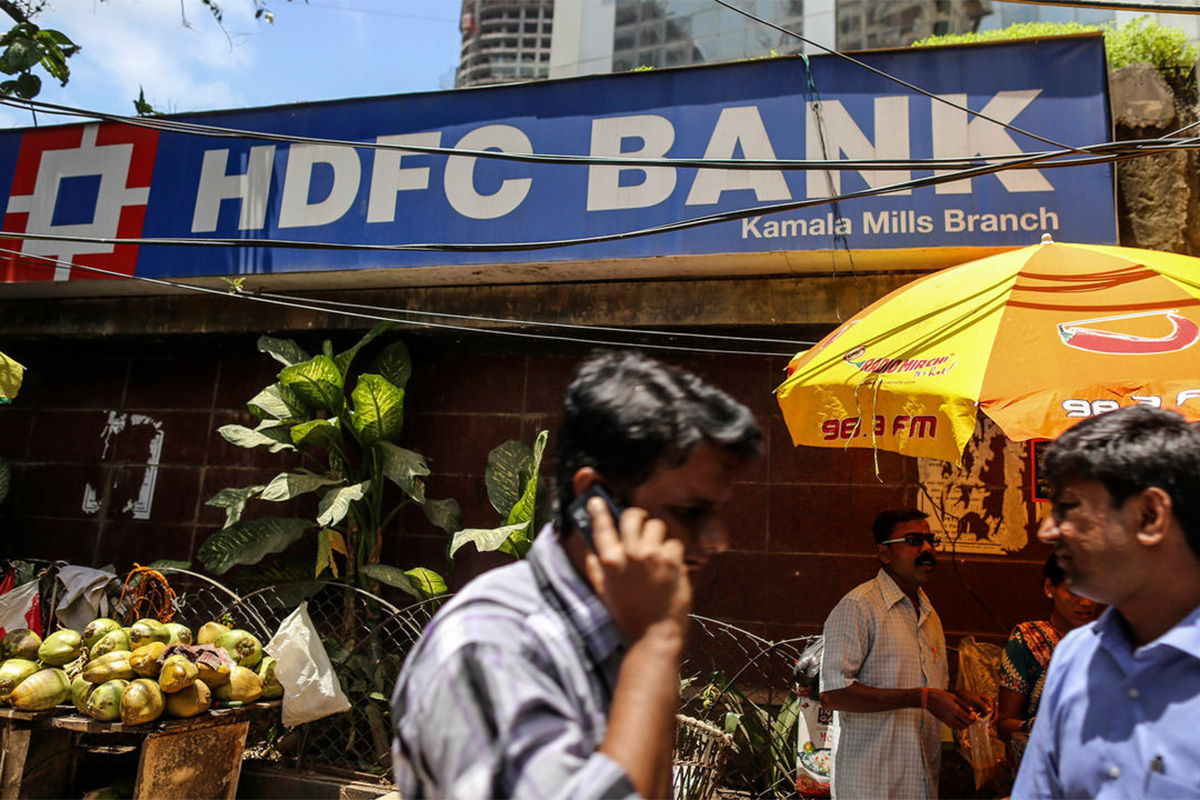Market valuation of 8 of top 10 most valued firms erode by over Rs 3 trillion
The combined market valuation of eight of the top 10 most valued firms eroded by Rs 3,09,244.57 crore last week.
Its core net interest income grew 8.57 per cent to Rs 17,009 crore on advances growth of 14.4 per cent and the net interest margin coming at 4.1 per cent, while the other income grew 54.3 per cent to Rs 4,075 crore.

(Photo: Getty)
Shares of HDFC Bank dipped over 3 per cent on Monday as the company’s June quarter earnings failed to impress investors.
At 3.57 pm, the banks stock went lower by 3.34 per cent to Rs 1,470.95 on the BSE and it dipped 3.28 per cent to Rs 1,472.40.
Advertisement
HDFC Bank’s consolidated net profit for the June quarter increased 14 per cent to Rs 7,922 crore, but the largest private sector lender reported reverses because of the second wave of the pandemic, which compressed its growth.
Advertisement
When compared with the preceding March quarter’s Rs 8,434 crore, there was a decline in the consolidated profit. On a standalone basis, the bank reported a post-tax profit of Rs 7,730 crore as against Rs 6,659 crore in the year-ago period and Rs 8,187 crore in the January-March period.
Its core net interest income grew 8.57 per cent to Rs 17,009 crore on advances growth of 14.4 per cent and the net interest margin coming at 4.1 per cent, while the other income grew 54.3 per cent to Rs 4,075 crore.
It can be noted that the year-ago quarter had a deep impact from the national lockdown and the ensuing impact on economic activity, whereas the reporting quarter had an impact due to localised lockdowns.
“These disruptions led to a decrease in retail loan originations, sale of third party products, card spends and efficiency in collection efforts. The lower business volumes, coupled with higher slippages, resulted in lower revenues, as well as an enhanced level of provisioning, the bank said in a statement.
“HDFC Bank reported lower-than-expected Q1 FY22 PAT of Rs 77.3 bn owing to greater-than-anticipated impact of the second COVID wave — from both lower disbursements and softer collections,” according to a note by Edelweiss Research.
Advertisement